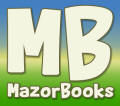 |

Today is:
|
 |
 |
|
|
rosh hashana, yom kippur, sukkot, simchat torah, shmini atzeret,chanukah,hanukkah,purim,pesach,passover,shavuot, lag ba'omer,tisha b'av |
|
|
|
Yom Kippur - Prayers
By: Rivka C. Berman, Contributor
Click Here for More Holiday Articles
Special Prayers for Yom Kippur
 The major
themes of the day are repentance and forgiveness. The major
themes of the day are repentance and forgiveness.
There are five services during Yom Kippur. In addition to
Selichot(penitential prayers) and Piyutim (liturgical poems) throughout
the special prayer book, the Machzor, main highlights include:
Kol Nidrei:
The evening service is preceded by the chanting of Kol Nidrei (lit.
'All the Vows'). This is a formal abrogation of all vows made during the
past year. Before embarking on a day of prayer, Kol Nidrei stresses the
importance of the words emanating from our mouths. It is an impassioned
plea to God to annul "vows' taken in innocence, or otherwise.
Confession (Vidui):
The ritual of Yom Kippur is replete with petitions for the forgiveness
for sins. These are listed as a series of misdeeds and are recited by
both the individual and the community. The sins are listed in the plural
implying that Jews are responsible for one another. As each of the
wrong-doings is recited, members of the congregation beat their hearts
to emphasize the more "subjective" side of the sin.
Avodah:
"Recalling the Temple Service." This is part of the additional
service (Mussaf) and is a record of the impressive ritual of Temple days
when the High Priest alone entered the Holy of Holies on Yom Kippur. The
descriptions of this elaborate ceremony and of the subsequent exaltation
of the people offer a rare insight into the poignant spirit of the day.
At certain points in this recitation, the congregation prostrate
themselves in total submission to God.
The Book of Jonah:
The Book of Jonah is read during the Minchah (afternoon) service on Yom
Kippur. It tells the story of the prophet Jonah who lived c. 750 BCE.
Jonah attempted to escape the divine command to prophesy about the
destruction of the evil people of Nineveh by sailing from the Land of
Israel. During a storm, Jonah is thrown overboard, delivered
miraculously from a whale, and commanded to continue his mission. God
spared the city when he saw the repentance of its people.
Among other lessons, the story demonstrates the power of atonement and
how God's compassion extends to all His creatures.
Ne'ilah:
The afternoon service is followed by Ne'ilah (lit. Closure). This is a
collection of prayers which are invested with special significance as
the Gates of Heaven symbolically close and an air of relief and optimism
descends upon the weary worshippers who have been outpouring their souls
throughout the day.
The service and the fast conclude with the blast of the shofar, a call
for the unity of all Jews in the holy city of Jerusalem, and a
proclamation of God's kingship over Israel in the famous call: "Shema
Yisra'el Hashem Elokeinu Hashem Echad"!
On returning home, the Havdalah ceremony is
recited for Yom Kippur.

Mazor Guide for Yom Kippur brings you much more about
the holiday, its meaning and its traditions... See the links below.
Articles
|
|






 The major
themes of the day are repentance and forgiveness.
The major
themes of the day are repentance and forgiveness. 



